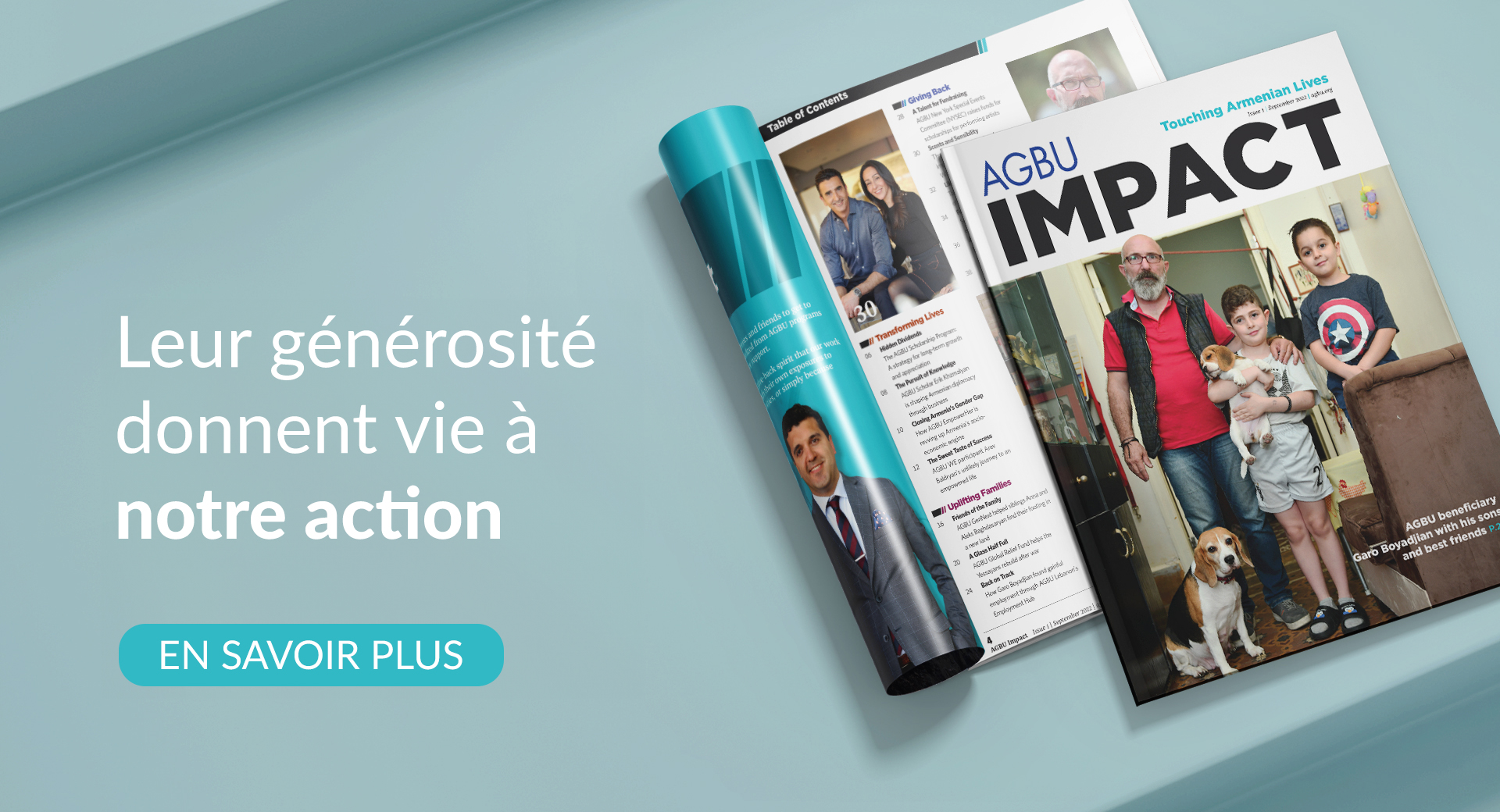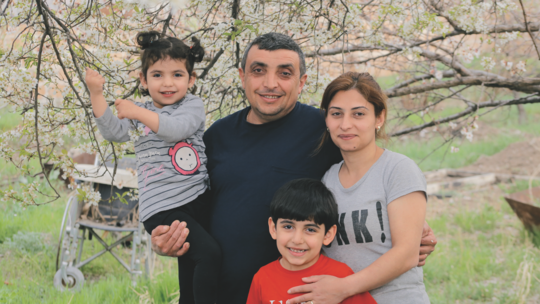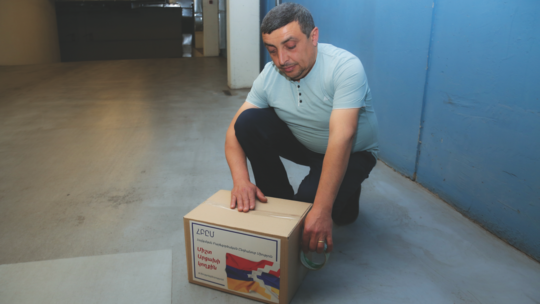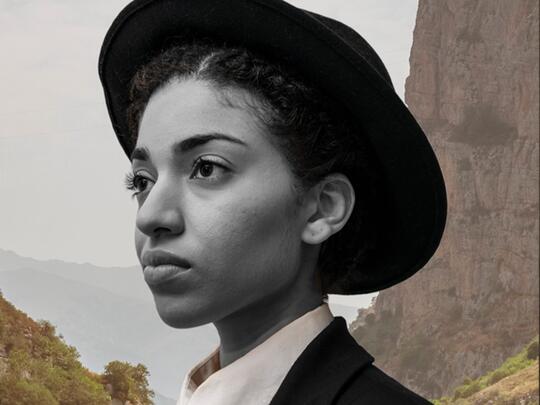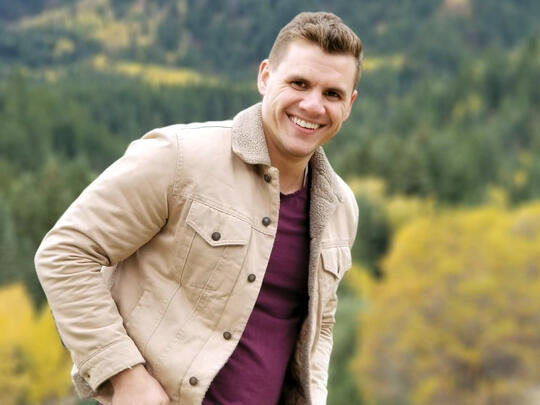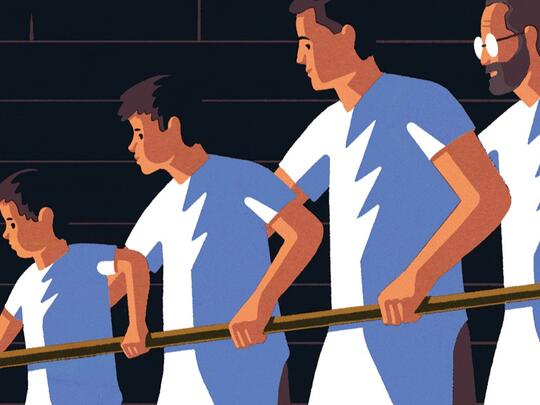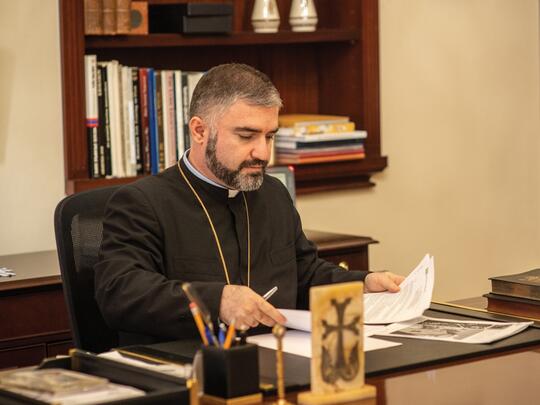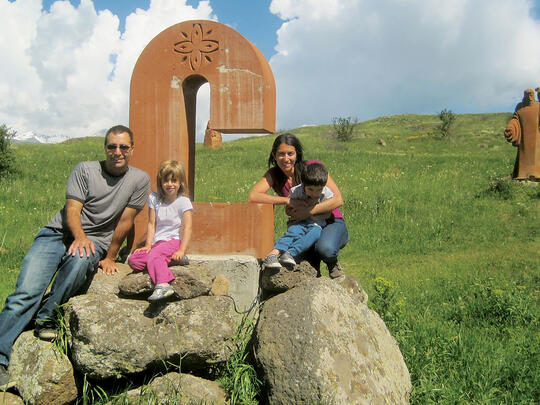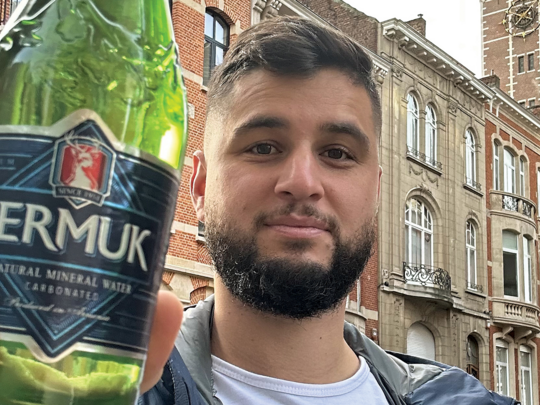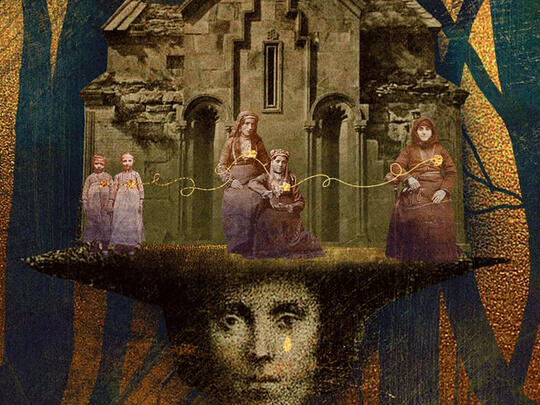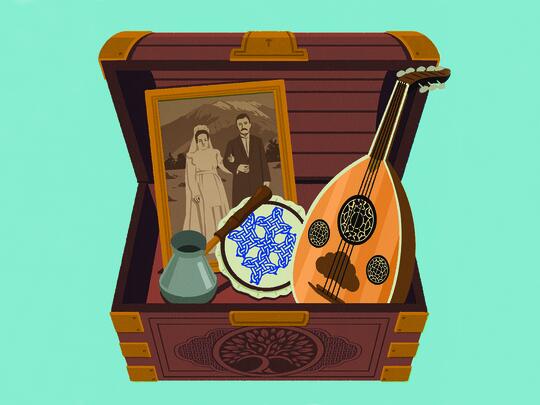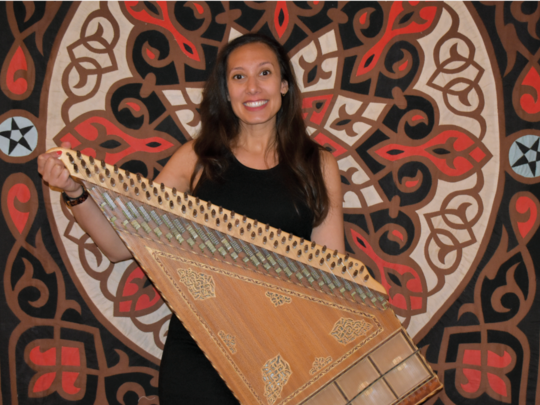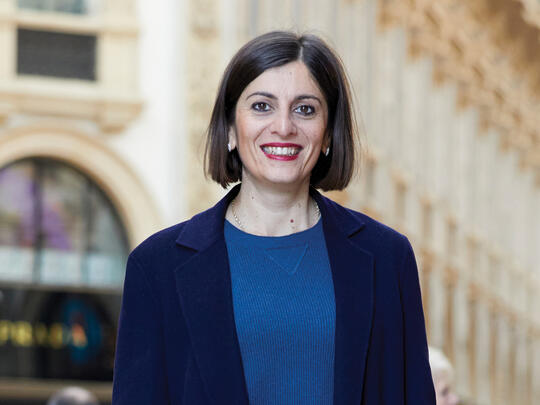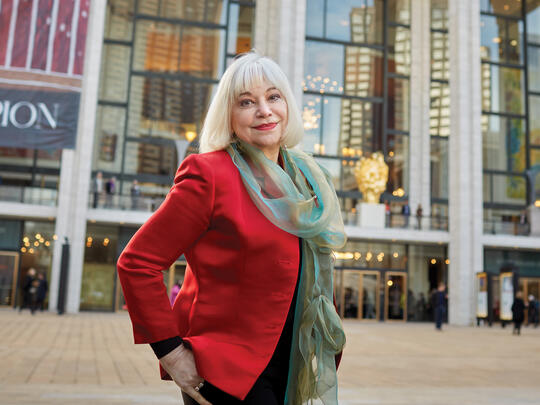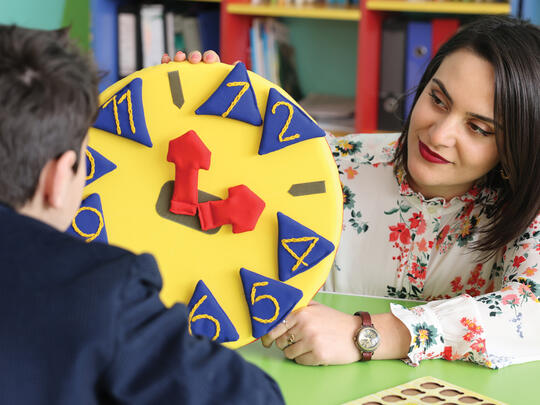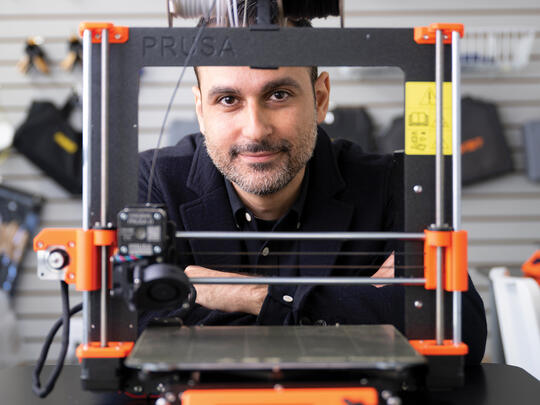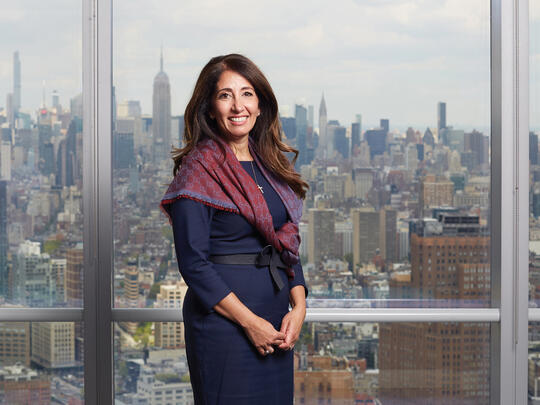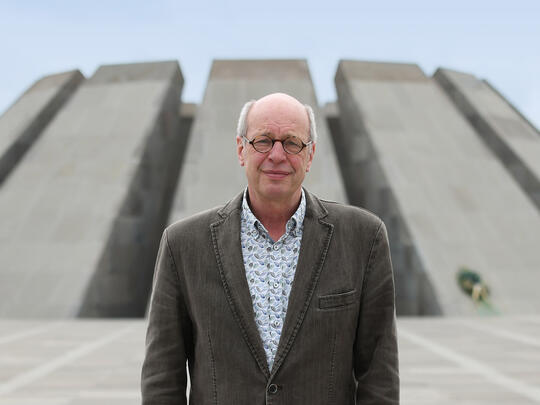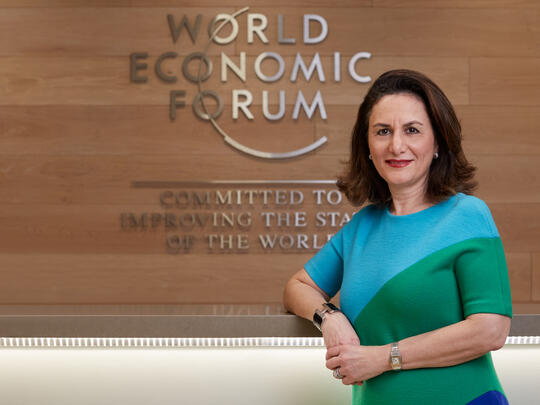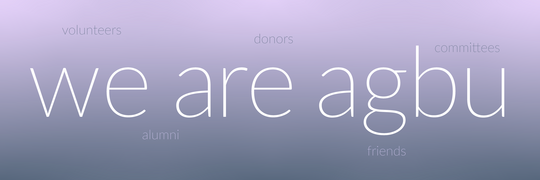
A Glass Half Full
Armen Yessayan
With all the unconditional support we received, I am determined to always look at life as half full—for the sake of my children, for the sake of my homeland.
Written for AGBU Impact Magazine 2022 by Lusine Minasyan. Photos by Ruben Otyan.
Painted by nature and embraced by mountains, Artsakh’s village of Aknaghbyur used to be a small piece of heaven for many Armenian families. Among them were the Yessayans, Armen and Meline. The couple woke up with the sun, had their morning coffee, bread, and cheese in their small fruit and vegetable garden, fed the pets, and prepared the children, Karine and Karen age 2 and 5, for kindergarten. The spouses then headed to the local school to educate the younger generation in biology and Russian language. Their salary from school and the produce from their small garden allowed them to manage their modest household and live a contented life in their hometown.
In his early years, accustomed to the quiet life of a small village, Armen left for broader horizons at the Medical Institute of Stepanakert and eventually became a feldsher (a medical doctor’s assistant)—an important calling to respond to emergency cases under doctor’s guidance. Yet, little did he know that he would receive his first hands-on experience on the battlefield instead of the operating room.
Armen was a university student when the first Artsakh War broke out. Hearing the sounds of bombing in the middle of the anatomy lesson, he recalls how he hid under the desk for safety. Shortly thereafter, he was recruited by the volunteer military medical hospital jeopardizing his life to save others. After the war, Armen served in the medical hospital till 1997, then spent a few years abroad and eventually returned to Aknaghbyur, where he met and married Meline.
She too experienced the horrors of the first Artsakh War. Her father sustained a second-degree injury which resulted in frequent visits to Armen, accompanied by his daughter. Eventually the two married in 2015 and within five years brought two children into the world.
Old Wounds Reopened
All was going well until the 44-day Artsakh War. On September 27, 2020, the sun rose to the sounds of war, changing their lives forever. But the couple did not even think about leaving the village, not to mention leaving it under Azeri control. “During the first war, many from the border villages fled to Aknaghbyur, as it was right behind the city of Shushi and the latter was unbreakable. It was the logical decision during the second war, too, but it didn’t work out,” says Armen, lowering his voice from a rush of memories.
At first, the men of the village were supplied weapons for self-defense and some of the women, including Meline’s sister arrived in Stepanakert to volunteer to sew clothes and prepare packages to send to the frontlines. In turn, Armen wanted to join the military hospital again, but the long pause in his career as a feldsher made him ineligible, so he stepped back.
Risking their lives for a month in the village, all the women were eventually evacuated to the nearest, relatively safer towns and villages. Meline was the last woman to join them. Though their husbands and brothers stayed, the Azeri overtake of Shushi forced even the men to abandon their native soil. Armen had to leave a friend behind who was fatally shot in his chest, which weighed heavily on his conscience. He ultimately joined his wife and kids in Kajaran, and they temporarily lived there until the November 9 trilateral ceasefire agreement between Armenia, Azerbaijan, and Russia was signed. With much effort, they were able to receive the remains of his friend, who succumbed to his injury and lay him to rest. Having nothing left but memories, the Yessayans decided to travel to Armenia to find safety and shelter.
A New Beginning
In response to the devastating war, AGBU mobilized all its humanitarian resources to surmount countless challenges, providing civilian refugees with shelter, food, and sustenance. Meline’s sister was the first to move to Yerevan and reach out to AGBU Armenia to find shelter for her immediate family members. Later, other relatives, including the Yessayans, reunited under one roof. Eventually, AGBU Vahe Karapetian Center hosted the Yessayans’ extended family of 21. “We were so lucky to meet such open-hearted people on our way. We were disappointed and demoralized. But here in Yerevan we received the level of assistance that temporarily freed us from day-to-day worries,” says Armen.
After living at the center for several months, most of the Yessayans’ relatives decided to return to Artsakh to rebuild their life in Stepanakert, close enough to their lost lands. However, the Yessayans made up their mind to stay in Yerevan for several reasons.
Their children had shown psychological trauma resulting from the war but adapted well to the kindergarten in Yerevan, making new friends and feeling comfortable and secure. Not to upset their routine again, their parents decided to stay in Yerevan for another six months, yet worried that any day the administration might ask them to leave. “But that never happened, and we could live there as long it took to recover from our own pain and find permanent shelter,” notes Meline with gratitude.
AGBU further assisted the family, offering Armen a service contract for temporary employment. He was hired to oversee the preparation of food and sustenance packages and coordinate deliveries to other displaced families. “Each supply was meant for 700 packages, and each package included hygiene essentials and food, such as chicken, butter, cheese, eggs, beans, and much more. Nowhere else one could find such a full package of assistance,” Armen emphasized. In turn, more than a year and a half later, Meline now has a kitchen of her own where she can reach for whatever she needs from the shelf, saying, “I still use the washing powder from these aid packages.”
After nine months, AGBU helped the family find and move to permanent housing in the same neighborhood, additionally providing them with priority household appliances, such as washing machine, an iron and a kettle.
Now, over a year and a half later, the Yessayans are settled in Yerevan. Living in a house with a garden in front is a throwback to their life of Aknaghbyur. Meline is content with the garden in which she can work with the soil, cultivate greens and fruit while, as she points out, scattering all her negative thoughts away.
They visit Artsakh quite frequently but each time reassure themselves that they made the right decision. “Mount Kirs is directly visible from Stepanakert. Whenever we go there, we look at the mountain and visualize our village right in front of it. The pain is immense and unbearable. Yerevan alleviates our wounds and helps us move forward,” says Armen.
The Yessayans are forever grateful for the unwavering assistance they received as a displaced family. Armen recalls the passages that he came across while reading Vahe Karapetian’s book Will That Belongs to an Armenian, saying, “As Mr. Karapetian wrote, it’s our choice to see if the glass is half full or half empty. With all the unconditional support we received, I am determined to always look at life as half full—for the sake of my children, for the sake of my homeland.”
This article was featured in the 2022 release of AGBU Impact Magazine. For more information on AGBU Global Relief Fund, click here.
